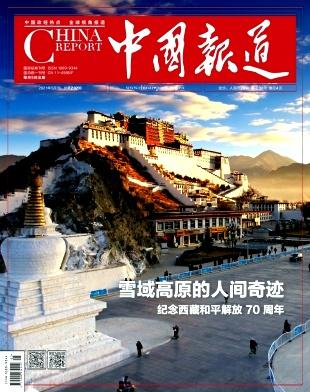恐华和恐华的二元趋势:对中国外交政策的影响
IF 0.7
Q3 AREA STUDIES
引用次数: 0
摘要
过去几年里,中华人民共和国让人既着迷又恐惧,既钦佩又蔑视。各种民意调查的数据发现揭示了世界各国“恐华”和“亲华”的微妙而矛盾的现象。对中国的一种看法是,中国是一个“专制”、“反民主”的政权,引发了焦虑和怀疑,反华情绪的趋势演变为“恐华症”,在新型冠状病毒爆发后,针对中国移民的种族主义和暴力案件不断增加,突显了这种情绪的普遍性和强度。在一些国家,人们注意到中国恐惧症的加剧,这些国家见证了中国投资的大量涌入,中国抢占了土地,导致当地就业岗位流失。然而,另一种观点是,这个国家因其经济崛起和传统文化而受到广泛钦佩。今天,中国的吸引力和吸引力越来越大,不仅因为它的经济往来,还因为它的文化、语言和旅游。公众的看法和意见是决定一个国家外交政策偏好和选择的关键因素。这一定性研究利用各种全球调查和民意调查来衡量中国公众舆论的二元趋势,并考察了公众舆论在外交关系中的突出地位,强调了多元化的方法。这篇文章列举了多个案例,突出了对中国的负面或正面的公众舆论是如何与对中国的侵略或友好的外交政策姿态相关联的。本文章由计算机程序翻译,如有差异,请以英文原文为准。
The Dualistic Trends of Sinophobia and Sinophilia: Impact on Foreign Policy Towards China
The People’s Republic of China has invited both fascination and fear, admiration and contempt in the last few years. Various public opinion surveys’ data findings reveal a nuanced and conflicted phenomenon of ‘Sinophobia’ and ‘Sinophillia’ across the world nations. One view of China is that of an ‘autocratic,’ ‘anti-democratic’ regime provoking anxiety and suspicion reflected in a trending wave of anti-China sentiments evolving into ‘Sinophobia,’ with its prevalence and intensity highlighted in increasing cases of racism and violence towards immigrant Chinese after the novel coronavirus outbreak. The growing intensity of Sinophobia is noticed in countries witnessing a barging influx of Chinese investment with Chinese land grabs and the loss of native jobs. However, another view is of a nation that inspires vast admiration for its economic ascent and traditional culture. Today, China has an increasing appeal and attraction not just for its economic engagement but also for its culture, language and tourism. Public perceptions and opinions are critical factors in determining a state’s foreign policy preferences and choices. This qualitative study utilises various global surveys and public opinion polls to gauge the dualistic trends of public opinion on China and examines the salience of public opinion in foreign relations, underlining a pluralist approach. The article illustrates multiple cases highlighting how negative or positive public opinion of China is correlated with an aggressive or friendly foreign policy posture towards China.
求助全文
通过发布文献求助,成功后即可免费获取论文全文。
去求助
来源期刊

中国报道
AREA STUDIES-
CiteScore
1.70
自引率
0.00%
发文量
9353
期刊介绍:
China Report promotes the free expression and discussion of different ideas, approaches and viewpoints which assist a better understanding of China and its East Asian neighbours. A quarterly journal of the Institute of Chinese Studies, it attempts to provide a fresh approach which goes beyond the strictly utilitarian area studies without becoming antiquarian. Launched in 1964, China Report has, over the years, widened its interests and aims and transformed itself into a scholarly journal that seeks a better understanding of China and its East Asian neighbours - particularly their cultures, their development and their relations with China. It is an indispensable source of information on China, its society and culture.
 求助内容:
求助内容: 应助结果提醒方式:
应助结果提醒方式:


